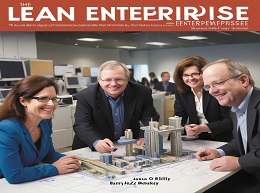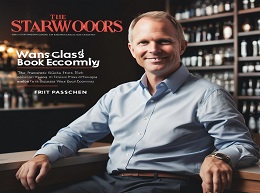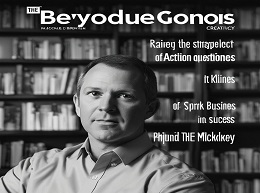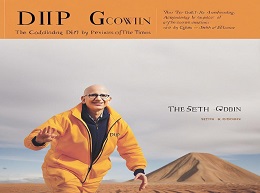The Lean Enterprise

"The Lean Enterprise" by Jez Humble, Joanne Molesky, and Barry O'Reilly provides a comprehensive guide for organizations seeking to embrace lean principles and drive innovation. In this review, we explore key concepts from the book and showcase real-world examples of successful lean transformations.
Understanding Lean Principles:
The book introduces readers to the core principles of lean thinking, emphasizing the importance of continuous improvement, waste reduction, and customer-centricity. These principles serve as the foundation for building a lean enterprise culture.
Example:
Toyota's renowned Toyota Production System (TPS) exemplifies the application of lean principles in manufacturing. By focusing on eliminating waste, improving efficiency, and empowering employees to make continuous improvements, Toyota has become a global leader in the automotive industry.
Value Stream Mapping:
Value stream mapping is a key tool in lean enterprise management, enabling organizations to visualize and analyze the flow of value to customers. By identifying areas of waste and inefficiency, organizations can streamline processes and optimize value delivery.
Example:
Amazon revolutionized the e-commerce industry with its lean approach to value stream mapping. Through sophisticated logistics and supply chain management, Amazon minimizes waste and maximizes efficiency, ensuring fast and reliable delivery to customers worldwide.
Agile and DevOps Practices:
"The Lean Enterprise" explores how agile and DevOps practices can complement lean principles, enabling organizations to deliver value to customers more rapidly and effectively. By fostering collaboration, automation, and continuous delivery, agile and DevOps methodologies drive innovation and responsiveness.
Example:
Netflix's adoption of agile and DevOps practices has enabled the company to continuously innovate and deliver new features to its streaming platform. By embracing a culture of experimentation and rapid iteration, Netflix stays ahead of competitors and delights its customers with personalized content recommendations and seamless user experiences.
Scaling Lean:
Scaling lean principles across large organizations can present unique challenges. "The Lean Enterprise" offers practical strategies for scaling lean practices effectively, including decentralized decision-making, cross-functional teams, and leadership alignment.
Example:
Spotify has successfully scaled lean principles by organizing teams into autonomous "squads" and "tribes" focused on specific areas of product development. This decentralized approach allows Spotify to innovate rapidly while maintaining alignment with strategic objectives.
"The Lean Enterprise" provides valuable insights and practical guidance for organizations looking to embrace lean principles and drive innovation. By adopting lean thinking, organizations can optimize processes, empower employees, and deliver greater value to customers in today's dynamic business landscape.













